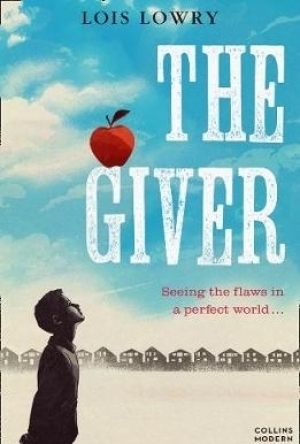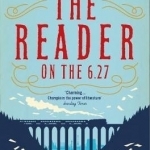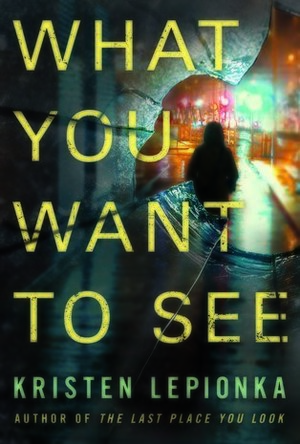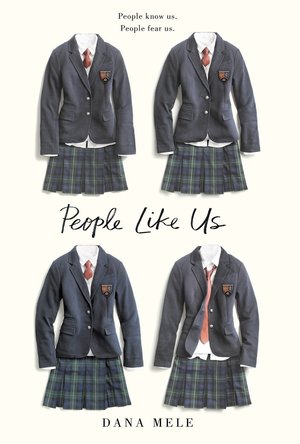<i>I received this book for free through Goodreads First Reads.</i>
It has been over twenty years since Lois Lowry’s controversial children’s story <i>The Giver</i> was published and it certainly deserves its status as an essential modern classic. Jonas has grown up in the perfect world of the Community whose survival relies on strict rules and rituals. Adults are assigned spouses and children (one boy and one girl) as they take up their role within the society. At the beginning of the book Jonas is approaching then end of his eleventh year and feeling apprehensive about the Ceremony of Twelve where he will be assigned a job for him to do for the rest of his adult life. Jonas gets selected as the Receiver of Memory – a very rare position – and begins to experience memories from humans who lived a long time ago. For Jonas this is exciting until he begins to see the flaws in his perfect world.
Dystopian literature has become popular over the past few years and it would not be surprising if it were <i>The Giver</i> that inspired these contemporary works. Lowry claims that she did not intend for The Giver to have a sinister feel about it; she was writing an adventure story and exploring the concept of the importance of memory, but it turned out to be something much more thought provoking. As the children’s novelist Margaret Mahy (<i>The Haunting</i>) pointed out, up until the publication of this novel in 1993 Lowry was best known for her funny stories about Anastasia Krupnik resulting in <i>The Giver</i> being even more shocking and unexpected.
<i>The Giver</i> highlights that attempting to produce perfection can often result in the loss of good things as well as the bad. The notion of the ideal world may seem like a wonderful proposal, but in order to achieve it humans would have to do away with free choice as in ironing out the inequalities and injustices of the present world would result in everything becoming the same for each individual.
This is a difficult concept to grasp, particularly for a child. Although intended as a children’s series, <i>The Giver</i> and its following installments are more suitable for young adults and older. The only issue with this is that the writing style was target at a younger audience meaning that the overall story is short and lacks depth. If it were to have been written for older readers then there would have been the scope for it to become a much lengthier novel.
There are a lot of mixed reviews surrounding this book although they have changed greatly since the original publication. To begin with <i>The Giver</i> was banned in some areas however the dystopian theme has become accepted in today’s society. What many people comment on now is the oversimplification of such strong ideas. Then again, as already mentioned, it needs to be emphasized that this book was aimed at children, thus the language reflects the reading skills of its target audience.
<i>The Giver</i> is a gem of a book that not only is enjoyable but also can educate the reader on the dangers of attempting a utopian society and why it is important to retain human memories – even the bad – in order that wisdom can exist. Those who have become fans of contemporary dystopian novels, for example <i>Divergent</i> by Veronica Roth or <i>Delirium</i> by Lauren Oliver, will be sure to love this series.
If sin were visible, what would the world be like? That is the premise of this brand new, original historical novel by Dan Vyletta. Bordering on steam-punk, <i>Smoke</i> is set in a Victorian England unlike any version ever documented before. Instead of an era of peace and posterity, it is full of wickedness and chaos. For an unexplained reason whenever a human acts with malicious intention or has a sinful thought their body emits a plume of smoke, staining their clothes and surrounding area with a coating of soot.
The story begins in an Oxford boarding school where two friends, Thomas and Charlie, are being taught that Smoke is bad and that they must learn to control it. However during the Christmas holidays, which both boys spend at a prodigious manor, they discover alternative views regarding Smoke, and are spooked by the Lady Naylor’s fascination. With their lives in sudden danger, Thomas and Charlie, along with Livia – Lady Naylor’s daughter – flee with the knowledge of a sinister, scientific intent that they do not understand.
From this point onwards the tale becomes darker and much more violent as the three friends try to work out Livia’s mother’s plans and endeavor to prevent her from carrying them out. All the while they are trying to deal with the effects of Smoke, which they have long given up trying to suppress.
Written from a large variety of viewpoints, <i>Smoke</i> is full of mystery and suspense, making it difficult to work out whom to trust. The reader has the same amount of knowledge as the protagonists and thus comes to the same conclusions at the same time, making reader and character feel like they are working together to identify the unknown.
It is unclear whether this is a young adult novel or intended for older readers. The key characters are only sixteen and are a trio of friends – two boys and a girl – which is something that since the dawn of <i>Harry Potter</i> has become fairly common place in YA literature. Also, Lady Naylor is reminiscent of the antagonist in Philip Pullman’s <i>His Dark Materials</i>. On the other hand, the language, whilst fitting for the time period, is far too formal to flow in a way that a book for teenagers would expect. There is also no attempt to sugarcoat or conceal the violence that takes place throughout a large section of the novel.
<i>Smoke</i> gets off to a shaky start leaving the reader feeling bewildered. The idea of Smoke and soot is not introduced in a clear manner, instead being thrown out there where everyone has to try and find the author’s wavelength and pick up the pieces as they go. Once the action begins – the escape from the manor – the story picks up the pace and becomes far more exciting before, sadly, diminishing into a confusing, violent jumble of a narrative that is tedious to try and follow. The conclusion, unfortunately, is also unclear, providing more questions that it actually solves.
I have very mixed feelings about this book. At times I enjoyed it, yet it also felt a chore to read. I found the concept rather confusing, unresolved and, on the whole, disappointing. <i>Smoke </i>is not a book I would easily recommend to anyone; even those who I know enjoy this particular genre. To be perfectly honest, I am glad I have finished it and do not need to read it anymore.
Samantha Hemsley (2 KP) rated The Reader on the 6.27 in Books
Jun 30, 2019
The unfortunately named (apparently -- I think you have to be a French speaker to really understand the reasoning) Guylain Vignolles is 36, lives alone with his beloved goldfish and works in a job he detests -- operating a book-pulping machine in a publishing factory. Guylain alleviates his resultant mental anguish by rescuing the occasional surviving pages at the end of each shift and reading them aloud to his fellow commuters on the 6.27 train each morning much to their mingled bewilderment and joy. Featuring some wonderful larger-than-life characters such as the classical theatre loving security guard who only speaks in Verse and the reformed alcoholic engaged in a quest to be reunited with his missing limbs and the toilet attendant with a secret talent for writing, this book is quirky and a bit ridiculous in the very best way.
As a fellow book lover, I empathised with Guylain's heartbreak over destroying so many books day in and day out. I can't even bear to write in a book or fold the corner of a page never mind reduce them to a pulp! I absolutely loved the way he attempted to do the books justice by giving what pages he could save an audience. This book is a real testament to the power and pleasure of reading aloud which is something I'm hugely passionate about -- I even wrote one of my university dissertations about the benefits of reading aloud with children.
I also loved its message of how reading can unite people, despite it being seen as a generally quite solitary or even introverted activity. Through his reading, Guylain finds himself being invited to do regular readings at a care home, much to the delight of the residents and when he finds a USB stick on his usual train seat containing over 70 diary entries, the lonely Guylain might just find that it leads to true love.
As well as being very charming and quaint, the novel manages to avoid becoming trite with its very astute observations and brilliant humour -- often laugh-out-loud funny. The prose is simple but very skillful -- especially the verses concocted by Yvon the security guard. Huge credit must also be given to the translator here. (The book was originally written in French) To translate rhyme into a different language so that it still rhymes and still makes perfect sense in the context can't be an easy feat!
My only criticism is that the book is very short -- fewer than 200 pages. Apparently the author is usually a writer of short stories and this is his first novel. This definitely shows as the ending feels very abrupt and definitely as if it could have done with another 50 pages or so; perhaps even more. I wasn't ready to say goodbye yet! Having said that, the ending was very sweet and it was only its abruptness that prevented it from being 100% satisfactory. I wouldn't quite say that there are any loose ends but it would have been nice to find out a little more about some of the characters and their stories.
Overall though this was a really lovely feel-good read that will appeal to anyone who loves literature and zany but endearing characters. I read one review that said the plot was "outlandish" and the characters "unbelievable" but I believe this reviewer was missing the point. This book champions the escapist qualities of reading and to have a story and characters who perhaps just slightly transcend reality can only elevate the escapism just that bit more. Feasibility be damned, I loved Guylain and his supporting cast members and I think I could easily read this short but sweet little story again and again!

NCERT Solutions for NCERT Books for Class 1 to 12
Education
App
NCERT Solutions by Meritnation is a completely free app which puts the solution to all NCERT Books &...
Kristy H (1252 KP) rated Cool for the Summer in Books
May 13, 2021
"How do you tell people who've listened to you babble about your crush on a guy for a thousand years that whoops, you spent the summer fooling around with a girl?"
Oh goodness, this was a great book. I'm so jealous there are so many wonderful YA LGTBQIA books out there now, which I would have devoured as a teen, yet incredibly happy too. I absolutely loved Lara as a character. She's sweet and bookish (addicted to romances) and in that stage where she's finding herself and coming out. It's hard not to relate to that. Adler's characters pop onto the pages--Lara, her mother, Jasmine, and Lara's cast of funny, overbearing, and loving friends. And even Chase, who is truly a good guy. (I appreciated that it wasn't "bad guy" versus "good girl" but two good kids, with their own personalities and flaws, whom Lara had to choose from.)
The book is told in a then and now format, starting out with Lara in high school and then flashing back to her summer in the Outer Banks with Jasmine. As someone who has spent some time in the Outer Banks, I loved the beachy setting, and the book just felt fun, summery, and exciting. You could feel the thrill of Lara and Jasmine falling for each other. It's so rare that we get this in our literature, and it brought back memories of my own first love and that fun, scared, happy feeling, along with all that uncertainly of realizing you were feeling these things for another girl. Adler captures it all so perfectly.
"If I somehow got Jasmine back--if I even wanted her back--what would it mean losing when everyone else found out the truth?"
The premise for this book is fascinating and lovely. Lara suddenly has everything she wants: she has pined after Chase for THREE YEARS. She comes back from vacation with a tan, a new haircut, and a newfound confidence (which no one knows the source of) and he suddenly takes notice of her. She should be in heaven--her friends certainly think so. Faced with having to make all these monumental life decisions, to realize whom she loves, and what she is--it's a lot. The book does such an excellent job of portraying bisexuality and the journey of figuring out who who you are. It's very well done, but also funny and witty. All the characters seem real and, for the most part, true to their age.
Overall, I loved this one. It portrays the queer community very well and does an excellent job capturing teens. The story is fun, sweet, and captivating. I feel like it would speak well to teens and adults who remember that spark of falling in love. I have to go read everything else by Adler now... 4.5 stars.

Hello Next! Forget your ex.
Entertainment and Lifestyle
App
Just broke up? Haven’t seen your ex for a while but your heart is still broken with no one there...

My Dictionary Pro
Education and Entertainment
App
Do you want to learn a foreign language quickly? A unique program for memorizing words will help you...

3rd Grade Non-Fiction Reading Comprehension
Education and Games
App
Improve your reading skills! 3rd Grade Non-Fiction Reading Comprehension is the most advanced...
Kristy H (1252 KP) rated What You Want To See (Roxane Weary #2) in Books
May 10, 2018
I loved this book. I love the first person aspect. The Roxane Weary series is straight-up great mystery writing. No unreliable narrator, no chapters that alternate POV or time periods, no gimmicks--just an excellent protagonist and a strong plot. It makes you long for mysteries of old (think Kinsey Millhone). The ways I love Roxane cannot truly be enumerated--she's a female lead in a mystery series, for one. She's smart, witty, and sarcastic. She's bisexual, but this characteristic is just who she is, not her main defining element or the entire defining point of the novel. As a bisexual female, I cannot stress how amazing this is in literature. To have bisexual representation (and have that representation be intelligent, funny, and not portrayed as evil and deviant), well, it's wonderful. She has relationships of all kinds and works on figuring out herself, just like any other person. Gasp! Imagine that. I couldn't love Roxane more (or Kristen Lepionka for creating this character). Also, Roxane calls waffles "golden beauty" and well, what more do you need in your PI? She's the Leslie Knope of private investigators.
I was worried that the second Roxane Weary novel wouldn't stand up to the first, but I was anxious for no reason. The second book is just as wonderful and intricately crafted as the first, and we get to see Roxane both struggling and growing professionally and personally. The case is a great one--it had me frantically reading and totally shocked me at the end, which I love. So rarely can a detective novel keep me guessing to the anymore. Marin Strasser is quite the character, and her web of lies pulls in a whole host of supporting characters.
We also see Roxane navigating new territory with Tom, her former lover (and, as mentioned, her dad's ex-partner), and get appearances again from the appealing Weary brothers and Roxane's mom. Roxane is still working on her relationships--not just romantic ones, but life ones, and you'll be touched as she figures out trying to be a "surrogate aunt" to Shelby, who appeared in book one. Watching her let her guard down at times is enjoyable.
The case is still mainly the star, though, and it won't disappoint. It's complicated and intriguing and everything comes together in ways that will make you gasp and keep you riveted. I was definitely shocked several times while reading. Not to mention I love it when an author can write a character that I truly hate--you know they've done a good job when you can feel that anger viscerally through the pages!
Overall, I have nothing bad to say about this book. Maybe that it's over, and I have to wait now for a (hopeful!!) book three? I love Roxane. I feel kinship toward her for sure, this sarcastic, bisexual PI whose still navigating the world around her. The mystery in this book won't disappoint, nor will the characters. If you haven't read the first Roxane Weary novel, I do recommend reading it first (mostly because it's also so good), but this will stand on its own. Highly recommend!!
I received a copy of this novel from the publisher and Netgalley in return for an unbiased review. More at http://justacatandabookatherside.blogspot.com/.
Amanda (96 KP) rated People Like Us in Books
Mar 12, 2019
So we have Katherine "Kay" at a boarding school called, Bates. She's there for a soccer and hopes to get an athletic scholarship. One night, her and her few friends come across a body, a student and things begin to unravel about Kay and now she's being blackmailed.
Here's Kay in a nutshell. She DID NOT come from money, though she is trying her best to dress and act the part - including being the bully. It's hard to say if she goes a long with most of the stuff her friends did and said, or if she is genuinely a 'mean girl'. Although, after a prank that was her idea comes to play, my sympathy for her slowly weakens.
She gets a link to this revenge blog and it works along with algorithm that if she doesn't get a student off the class roster (meaning getting them expelled) then information about her is leaked to the police that could put her in prison. How it works is the blog is a stove and it opens for a 'recipe'. The recipe is a poem and sometimes had photos or information that incriminates her friends. One of them, for example, hints that one of her friends cheats on her tests.
To add to the drama, Kay struggles with her romantic feelings for her best friend (though I often wonder why) Brie whom has a girlfriend. They've gone through the whole will they or will they not bit, and although Brie has a girlfriend, Kay still struggles. She also has conflicting feelings for her ex-boyfriend, Spencer, who cheated on her...oddly enough with the student they found dead.
Kay's life is one long soap opera. She harbors a secret about her brother's murder and her best friend's suicide (before she was shipped to Bates). Her and her group of friends makes me think of the reasons of why I didn't hang out with a group of girls growing up. They are catty and vengeful. Sometimes guys aren't any better, but I had more guy friends than I did girl friends growing up.
I dozed off on most of the book because Kay started babbling on about certain things that just didn't keep my interest. The more she told her story the more intrigued I did get, but in the end, I still couldn't really feel much for her. I'm not sure if that was the intention of the story - perhaps if it were, it wouldn't be told by Kay. The characters were not likable, but I think that was the point.
I didn't even care for Brie whom is basically the only NICE girl in the whole bunch. I can understand her being hurt by Kay (and Kay has said and done some things to warrant that), but at the same time, I wonder what it is about her that has Kay wanting her so badly.
I liked Nola for a moment because she was a computer nerd and liked literature, but that didn't last long at all. The only character I felt for was a cat named Hunter...poor kitty.
The story as a whole wasn't bad. Each side story came around in full circle and nothing was left out or left unresolved. I didn't even have a problem with how it ended, because honestly, how else would it have ended? Kay expresses regret for her actions and the things she has said, but if the story were to continue into a book two, I better see some major growth from everything she endured.





